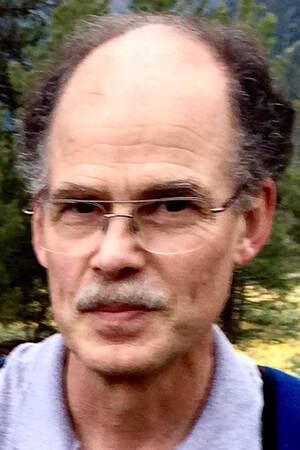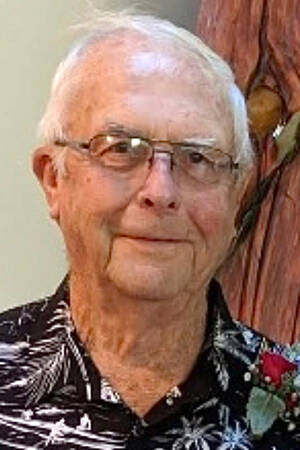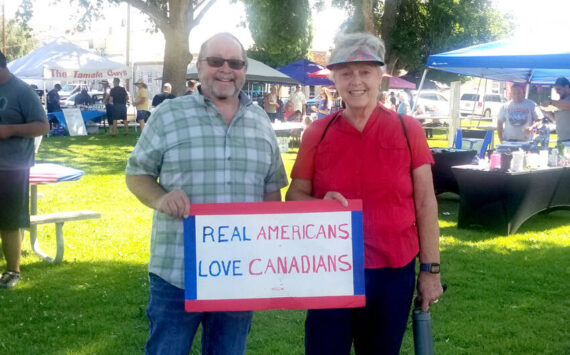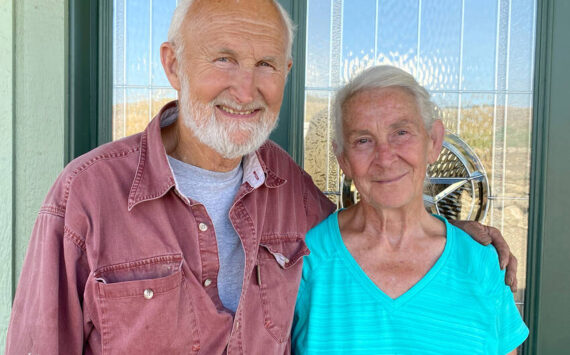Submitted by Meghan Francis
COLVILLE TRIBES PUBLIC AFFAIRS OFFICE
NESPELEM, WA — The Colville Business Council voted unanimously to distribute the Colville Tribes’ “Ramah Settlement” award through per capita payments, CBC Chairman Dr. Michael Marchand said today.
“The Council is clear that Ramah settlement funds should go to our Tribal members,” Marchand said. “We believe it’s in the best interests of our membership, and in the best interest of the Tribe as a whole.”
Last week, Marchand signed the claim form necessary to accept the Tribes’ share of the settlement reached in the class action case of Ramah Navajo Chapter, et.al. v. Sally Jewell. Yesterday the CBC Management and Budget Committee approved the disbursement of the settlement in per capita payments. The Confederated Tribes of the Colville Reservation expects to receive about $13.4 million from the settlement. The federal government will release the money to the Colville Tribes and deposit in the Tribes’ bank account, a process which could take a few weeks. Based on this amount, it is estimated per capita payments of approximately $1,400 will be distributed to each enrolled Colville member.
“The Colville Business Council is aware that the Ramah funding was intended to repay Tribes for costs they should never have incurred in the first place, to assure that important health care and other services were provided to tribal members,” CBC Management and Budget Chairman Jack Ferguson said today. “We also are aware of the significant needs of our membership for basic necessities that others may take for granted. We know that this per capita will help our members to meet at least some of those needs.”
The Ramah class action lawsuit began 1990, when Indian tribes throughout the United States sought recovery for underpayment of contract support costs (CSC) for tribal 638 contracts with the Bureau of Indian Affairs and the Indian Health Service. Contract support costs are administrative “overhead” costs for necessary accounting, equipment, human resources services, etc. For many years the BIA did not fully fund the Tribes’ administrative costs, saying that Congress did not appropriate enough money. Colville, like other Tribes, either had to supplement program budgets with tribal dollars or cut back on essential services.
After courts ruled that BIA had to pay the full CSC amounts, even if Congress failed to fund them, the federal government agreed to settle the case. The total amount of the settlement is $940 million, less attorney fees, court costs and a reserve to cover costs of distributing the money. The Colville Tribes’ portion is based on a pro-rata distribution formula developed by the court.
“Our elders, our children, our families, all will benefit from this payment, and it is fitting that we provide this per capita for them and for the overall well-being of the Colville Tribes,” Andy Joseph, Jr., Chairman of the CBC Health and Human Services Committee, said today.
Ferguson noted that the CBC can take this action because of careful spending practices in the past.
“We are pleased to be able to distribute these funds,” Ferguson said. “Even though we have had to use our own tribal dollars to supplement programs that weren’t fully funded by the BIA and IHS, CBC’s careful fiscal management has made it possible to provide per capitas to every Colville member.”
About the Colville Tribes: Today, more than 9,365 descendants of 12 aboriginal tribes of Indians are enrolled in the Confederated Tribes of the Colville. The tribes, commonly known by English and French names, are: the Colville, the Nespelem, the San Poil, the Lake, the Palus, the Wenatchi (Wenatchee), the Chelan, the Entiat, the Methow, the southern Okanogan, the Moses Columbia and the Nez Perce of Chief Joseph’s Bands.






